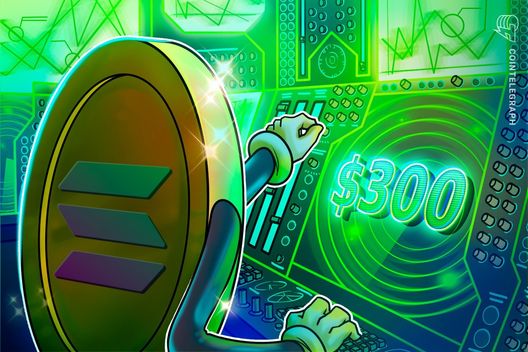The cryptocurrency landscape continues to evolve at a rapid pace, with Solana (SOL) emerging as a significant player in the market. One of the key indicators of its growing strength is the increase in Total Value Locked (TVL), which reflects the robustness of its decentralized finance (DeFi) ecosystem. As more users engage with decentralized exchanges (DEX), the activity around SOL has seen a notable uptick, signaling a healthy interest in its platform.
Moreover, institutional demand for SOL is on the rise, suggesting that significant investors are recognizing the potential of this cryptocurrency. This wave of institutional interest could be further intensified by the broader hope among investors for spot Exchange-Traded Fund (ETF) approvals. Such a development could potentially unlock new channels for investment and contribute to market confidence.
As the cryptocurrency industry grapples with regulatory changes and market dynamics, SOL’s performance is becoming increasingly intertwined with these larger trends.
With a backdrop of a favorable market environment and heightened investor activity, SOL is certainly positioned for interesting developments. Its ascent reflects not only the growing mainstream acceptance of cryptocurrencies but also the foundational shifts that are taking shape in the financial landscape.
SOL’s Bull Case: Key Points
The following key points highlight the factors supporting SOL’s bullish outlook:
- Rising Total Value Locked (TVL): Indicates increased user trust and investment in the ecosystem, enhancing network stability.
- Increased DEX Activity: Reflects growing trader engagement and liquidity, providing more opportunities for users to participate in decentralized finance.
- Strong Institutional Demand: Suggests confidence from institutional investors, potentially driving up demand and prices.
- Hope for Spot ETF Approvals: Anticipation of regulatory approvals may attract more mainstream investment, boosting the market as a whole.
These factors may influence investor sentiment and market dynamics, possibly leading to increased individual investment opportunities.
Exploring SOL’s Position Amidst Institutional Trends and DEX Evolution
The current landscape surrounding SOL demonstrates notable competitive advantages that set it apart from others in the cryptocurrency market. With the total value locked (TVL) in decentralized finance (DeFi) surging, SOL is gaining traction as an appealing platform for users seeking to leverage new financial opportunities. This increase in TVL, reflecting greater user engagement and trust, positions SOL favorably against its contemporaries like Ethereum and Binance Smart Chain, which also boast substantial DeFi ecosystems but face scalability challenges.
Moreover, the uptick in decentralized exchange (DEX) activity serves as a critical advantage for SOL. As investors flock toward DEX platforms for trading due to lower fees and enhanced privacy, SOL’s ability to seamlessly integrate with these systems enhances its utility and attractiveness. In contrast, other projects may struggle with high gas fees or regulatory scrutiny, giving SOL a distinct edge in user experience.
Furthermore, the buzz surrounding potential spot ETF approvals has ignited institutional interest in SOL. Strong demand from institutional investors positions SOL as a forward-thinking asset in the crypto space, appealing to those looking for trusted investments. This burgeoning interest contrasts with projects that lack the same institutional appeal, potentially sidelining them in favor of SOL’s more robust market presence.
However, it’s essential to acknowledge the disadvantages as well. SOL faces competition from established platforms that have built substantial ecosystems over time. These competitors hold strong brand recognition and established user bases that may challenge SOL’s growth. Additionally, while institutional interest is a boon, it also opens SOL up to volatility—if institutions decide to exit, it could substantially impact price stability.
The news about SOL’s strengthening fundamentals is likely to benefit retail investors seeking promising projects in a burgeoning market. Moreover, financial institutions looking to diversify their portfolios could find SOL appealing amidst the growing DeFi landscape. Conversely, projects with less user engagement and institutional backing may struggle to keep pace, potentially hindering their growth and positioning in a highly competitive crypto ecosystem.
















